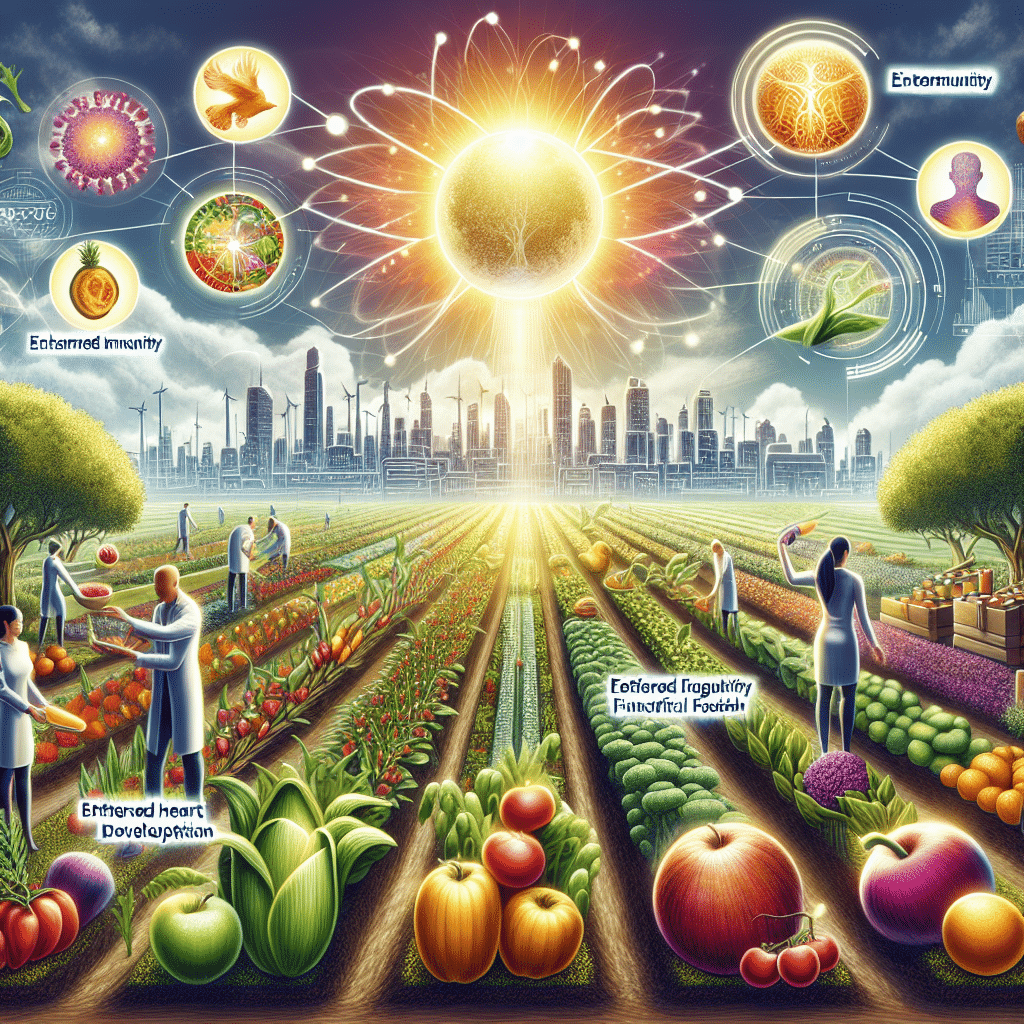Functional Foods’ Growth: Nourishing the Future
-
Table of Contents
- Functional Foods’ Growth: Nourishing the Future
- Understanding Functional Foods
- The Drivers of Functional Foods’ Popularity
- Market Growth and Trends
- Case Studies: Success Stories in Functional Foods
- Challenges and Considerations
- Conclusion: The Future of Functional Foods
- ETprotein: Your Partner in Functional Foods
Functional Foods’ Growth: Nourishing the Future

The concept of food as a means to support health beyond basic nutrition is far from new, yet the functional foods industry has seen a remarkable surge in both interest and innovation in recent years. Functional foods, enriched with nutrients and compounds that provide health benefits beyond their nutritional value, are at the forefront of a shift towards health-conscious consumption. This article delves into the growth of functional foods, exploring the factors driving their popularity and how they are shaping the future of nutrition.
Understanding Functional Foods
Functional foods are foods that have been enhanced with additional ingredients or nutrients to provide health benefits beyond their inherent nutritional content. These benefits can range from improving heart health and boosting the immune system to reducing the risk of certain diseases. Common examples include omega-3 fortified eggs, probiotic yogurts, and beverages enriched with vitamins and minerals.
The Drivers of Functional Foods’ Popularity
The growth of the functional foods market is fueled by several key factors:
- Increased Health Awareness: As consumers become more health-conscious, they seek out foods that can contribute to their overall well-being.
- Aging Populations: With a growing number of older adults, there is a heightened demand for foods that can help manage age-related health issues.
- Rising Healthcare Costs: Functional foods offer a proactive approach to health, potentially reducing the need for medical intervention and associated costs.
- Technological Advances: Innovations in food science and technology have enabled the development of new functional food products.
- Personalized Nutrition: The trend towards personalized diets has led to an interest in functional foods tailored to individual health needs and goals.
Market Growth and Trends
The functional foods market has experienced significant growth, with projections indicating continued expansion. According to a report by Grand View Research, the global functional foods market size was valued at USD 177.77 billion in 2019 and is expected to grow at a compound annual growth rate (CAGR) of 7.9% from 2020 to 2027.
Emerging trends within the functional foods industry include:
- Plant-based Functional Foods: The rise of veganism and plant-based diets has led to an increase in plant-based functional products.
- Functional Snacking: Consumers are turning to snacks that not only satisfy hunger but also provide health benefits.
- Gut Health: There is a growing understanding of the importance of gut health, with products like probiotics and prebiotics gaining popularity.
- Functional Beverages: Drinks that offer hydration along with added health benefits are becoming increasingly popular.
Case Studies: Success Stories in Functional Foods
Several companies have successfully capitalized on the functional foods trend. For instance, Chobani’s probiotic yogurts and drinks have resonated with consumers looking for gut health solutions. Another example is KIND Snacks, which has built a brand around wholesome, nutrient-dense ingredients that offer both taste and functionality.
On a larger scale, food industry giants like Nestlé and Danone have invested heavily in functional food research and development, launching products that cater to health-conscious consumers while also addressing specific dietary needs.
Challenges and Considerations
Despite the potential of functional foods, there are challenges that manufacturers and consumers must consider:
- Regulatory Hurdles: The health claims of functional foods are subject to strict regulations, which can vary by region and create barriers to market entry.
- Scientific Validation: It is crucial for companies to back their health claims with solid scientific evidence to maintain consumer trust and avoid legal issues.
- Consumer Skepticism: Some consumers remain skeptical about the efficacy of functional foods, requiring education and transparency from brands.
Conclusion: The Future of Functional Foods
The functional foods industry is poised for continued growth as it aligns with global trends towards health and wellness. As consumers increasingly seek out foods that offer specific health benefits, the market will likely see a proliferation of innovative products designed to meet these demands. However, for the industry to thrive, it must navigate regulatory landscapes, invest in scientific research, and maintain consumer trust through transparency and education.
For companies like ETprotein, the growth of functional foods presents an opportunity to offer high-quality protein products that cater to the health-conscious consumer. ETprotein’s range of plant-based proteins, including organic rice protein and pea protein, can serve as the foundation for a variety of functional food products, from sports nutrition supplements to health-focused snacks and beverages.
ETprotein: Your Partner in Functional Foods
About ETprotein:
ETprotein, a reputable plant protein vegan protein Chinese factory manufacturer and supplier, is renowned for producing, stocking, exporting, and delivering the highest quality organic bulk vegan protein and plant proteins. They include Organic rice protein, clear rice protein, pea protein, clear pea protein, watermelon seed protein, pumpkin seed protein, sunflower seed protein, mung bean protein, peanut protein etc. Their offerings, characterized by a neutral taste, non-GMO, allergen-free attributes, cater to a diverse range of industries. They serve nutraceutical, pharmaceutical, cosmeceutical, veterinary, as well as food and beverage finished product distributors, traders, and manufacturers across Europe, USA, Canada, Australia, Thailand, Japan, Korea, Brazil, and Chile, among others.
ETprotein specialization includes exporting and delivering tailor-made protein powder and finished nutritional supplements. Their extensive product range covers sectors like Food and Beverage, Sports Nutrition, Weight Management, Dietary Supplements, Health and Wellness Products, and Infant Formula, ensuring comprehensive solutions to meet all your protein needs.
As a trusted company by leading global food and beverage brands and Fortune 500 companies, ETprotein reinforces China’s reputation in the global arena. For more information or to sample their products, please contact them and email sales(at)ETprotein.com today.












